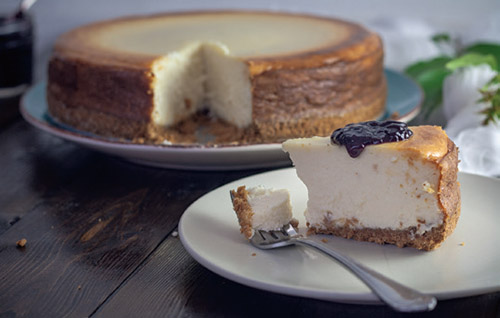
(Courtesy of Tnuva) You might be familiar with the word quark within the realm of physics, not the culinary arts. And yet, there is Tnuva’s Quark Cheese, a creamy, soft offering that is not your typical all-American product, yet is becoming quite trendy in the kosher dairy marketplace. Tnuva Quark Cheese, which is sold in 3 percent, 5 percent and 9 percent fat varieties, and can be used in numerous sweet and savory dishes, is already wildly popular with Israeli dairy consumers.
So, what is it and how should you eat it?
Quark comes in many shapes and textures, but it’s always soft, white and un-aged, and often has no salt added. It’s made by warming soured milk until the desired amount of curdling is met. It’s most common in the cuisines of German-speaking countries, Northern and Eastern Europe, and… Israel, thanks to the Ashkenazi Jews who carried this European recipe all the way to the Middle East.
One of the great things about quark is that it’s a yummy and healthy alternative to cream cheese, due to its high protein and relatively low fat content. It can be enjoyed in many different ways. You can try it with honey and seasonal fruit or as a dip with your favorite chips. Spread it on toast with a pinch of salt and a drizzle of olive oil or put it on your blueberry pancakes for a healthy dose of protein. Let your imagination run wild!
If you’d like to take a more traditional route, try making Käsekuchen—a delicious German-style cheesecake made with quark, or Syrniki—rich Russian quark pancakes to die for. And yes, you can spread it on your bagel as an alternative to cream cheese.
Tnuva Quark Cheese, which can be found at metro-area supermarkets and grocery stores, is made according to the strictest dairy kashrus standards, highlighting both the Badatz Jerusalem Eida Chareidis and Tnuva Vaad Mehadrin hashgachas.













